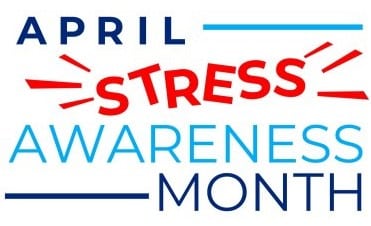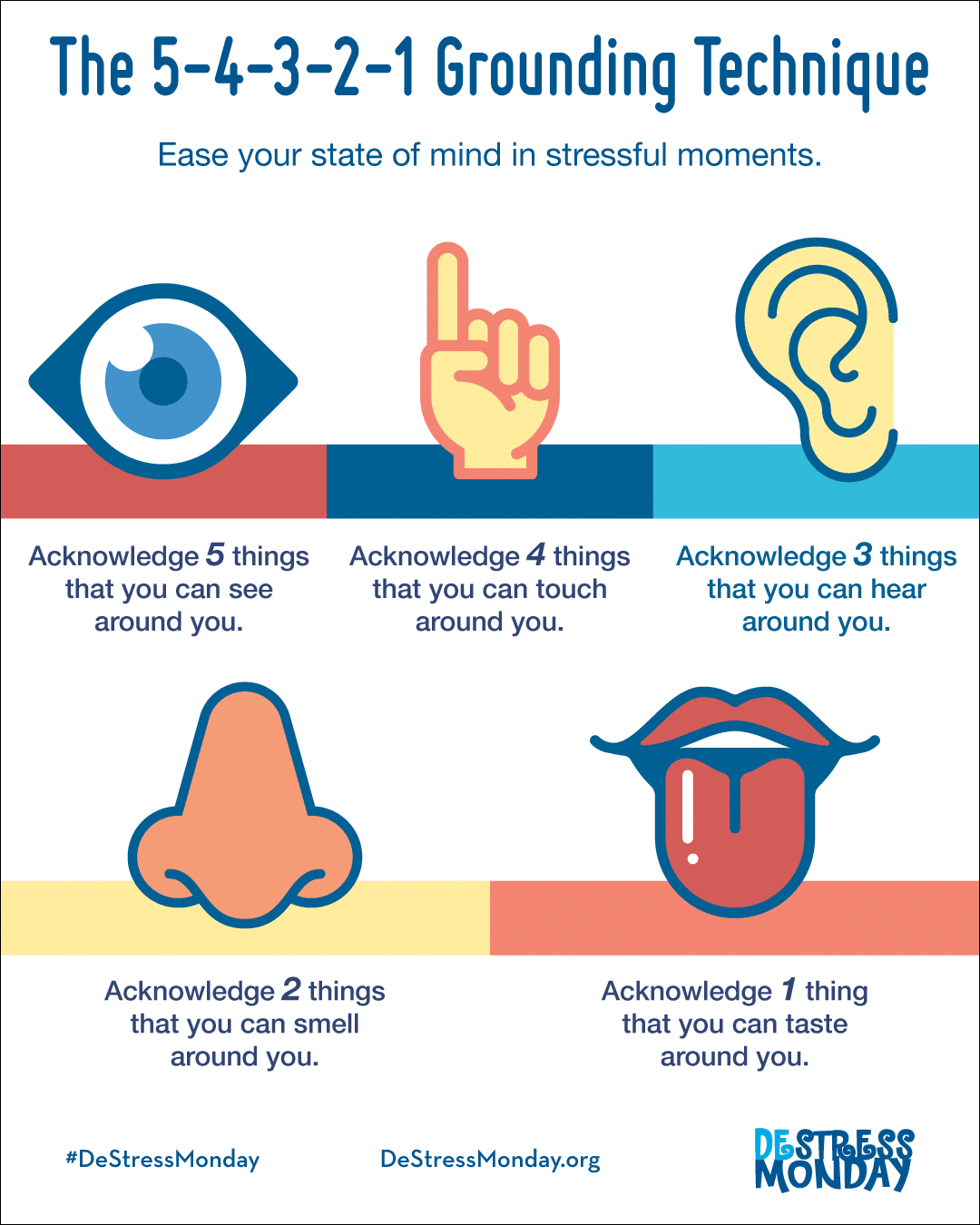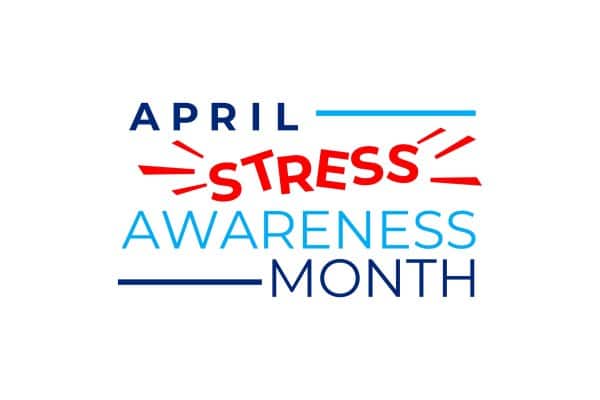Welcome to the fourth month of the year, April. Our health focuses this month on Stress Awareness Month, and our Lyric Virtual Care Blog will highlight seven key coping tips and strategies for navigating life’s challenges with resilience and well-being. In the fast-paced whirlwind of our daily lives, it’s easy to get swept away by stress, anxiety, and the overwhelming demands of today’s tech-filled world. Are you ready to embark on a journey towards improved mental health, reduced stress, and a more serene lifestyle? If so, then you’re lucky! We’ve curated seven expert tips to guide you on this transformative path. Let’s get started!

7 Tips to improve mental health, reduce stress, and lower anxiety
1. Sleep Like an Expert: Experts say that getting enough sleep is one of the most important things we can do for our mental health. Try these three simple sleep techniques:
-
- Establish a consistent sleep schedule by trying to go to bed each night at the same time.
- Create a relaxing bedtime routine to signal your body that it is time to wind down.
- Make your bedroom more comfortable by lowering the temperature and removing your phone and TV to reduce the stimulating light.
2. Tidy Up Your Space, Tidy Up Your Mind: Learn the art of decluttering and witness how a neat and organized environment can work wonders for your mental clarity and peace of mind. When you’re struggling with your mental health, basic tasks like washing dishes or doing laundry can feel impossible. But living amid mess can make you feel even worse. KC Davis, a licensed professional counselor and author of “How to Keep House While Drowning,” advises focusing on function over aesthetics — your home doesn’t have to be perfect, but it should be livable. An efficient way to keep things from getting out of hand is to practice what she calls “five things tidying.” Tackle the five main categories of clutter — trash, dishes, laundry, things with a place, and things without a place — one at a time to help cleaning feel more manageable.

3. The 5-4-3-2-1 Method: Dive into this powerful technique to ground yourself in the present moment. The 5-4-3-2-1 Method identifies the following:
-
- Five things you can see
-
- Four things you can touch
-
- Three things you can hear
-
- Two things you can smell
-
- And one thing you can taste
Doing this will help shift your focus from anxiety-provoking thoughts to the present moment.
4. Embrace the Attitude of Gratitude: Cultivate an attitude of appreciation and watch as your perspective on life shifts towards the positive. Experts say it’s important to express gratitude whenever possible to reap the benefits of gratitude. That might include writing letters of thanks or listing the positive things in your life in a journal. Giving thanks to friends, romantic partners, and co-workers can also boost relationships.
5. Optimism Knows No Age: Challenge societal norms and embrace a positive outlook on aging. Discover the beauty and wisdom of each passing year and let go of the fear and anxiety surrounding the aging process. A classic study found that people who were optimistic about aging lived seven and a half years longer than those who had negative perceptions of it.

6. Unplug and Recharge: Take a break from the digital world and reconnect with the simplicity of life. Explore the benefits of a tech detox in reducing stress, enhancing productivity, and fostering meaningful connections. Set a timer for 15 minutes, then silence and set aside your phone. When time is up, take one or two minutes to check your favorite apps — that’s your tech break. To regain control of your concentration, Larry Rosen, a professor emeritus of psychology at California State University, Dominguez Hills, suggested a strategy he calls “tech breaks.” Set a timer for 15 minutes, then silence and set aside your phone. When time is up, take one or two minutes to check your favorite apps — that’s your tech break.
7. Take Breaths: Harness the power of your breath as a tool for relaxation and stress relief. One of the fastest, easiest ways to calm your mind and body is taking slow, deep breaths. Doing so helps to turn up your parasympathetic nervous system—the counterbalance to the “fight or flight” stress response—lower your blood pressure and regulate your heart rate.

We hope you find these 7 tips something new and different to help educate and raise awareness of Stress Awareness Month.
Let’s remember that our mental health deserves ongoing attention and care beyond the month of April. The CDC defines mental health as emotional, psychological, and social well-being. It affects how we think, feel, and act. It also helps determine how we handle stress, relate to others, and make healthy choices. Mental health is essential at every stage of life, from childhood and adolescence through adulthood.
We should continue prioritizing self-care, seeking support when needed, and cultivating resilience in facing life’s challenges. By fostering awareness and understanding of stress, we empower ourselves and others to lead healthier, happier lives year-round.
Together, let’s strive for a future where mental well-being is a priority for all. If you need to talk to someone anytime, our Lyric Health board-certified counselors, psychiatrists, and psychologists are available. Simply log in to our member portal to schedule your session.


